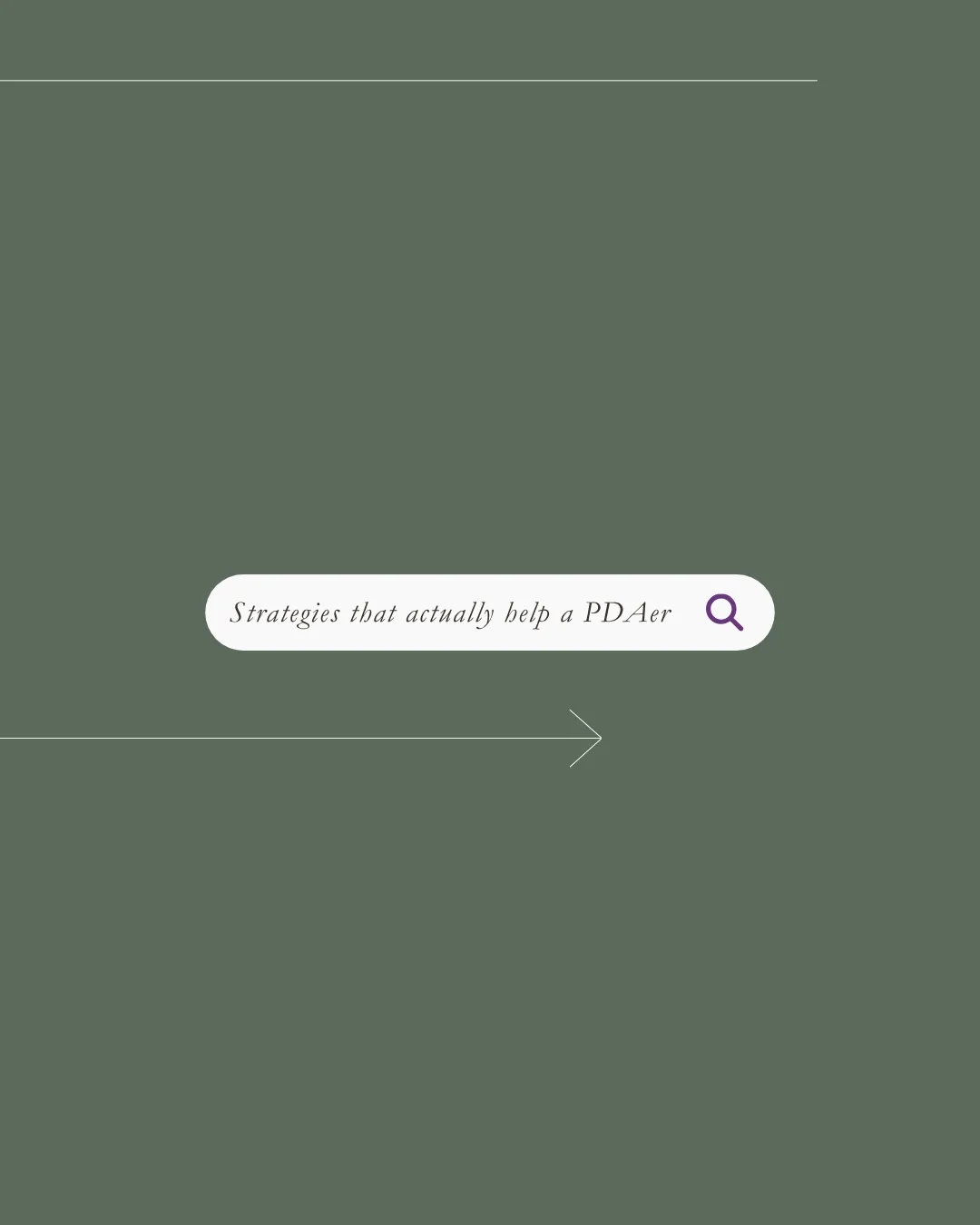Making Sense of PDA
A Bite-Sized Masterclass for Parents, Teachers & Therapists
ACCESS THE FULL RECORDING👇🏼
In this free 12-minute mini-masterclass, I share the resource that changed everything for me in how I understand and support PDAers.
In the video I share how to:
Recognise the stages that reflect how escalation occurs; from calm and able through to panic.
Notice the shifts in a PDAer’s behaviour, communication, and body language that show what’s happening in their nervous system.
Map a child’s unique individual responses so we can spot subtle changes before things escalate.
Understand what it means when a child is rarely in a ‘calm and able’ state, and how that guides our priorities.
When helping feels harder than it should
A simple shift that changed everything
If you’re a professional working with a child with a PDA profile, you might know the feeling of wanting to help, but feeling stuck — two steps forward, one step back. In my work alongside professionals, I’ve found that exploring this one key understanding together can shift how we make sense of a child’s behaviour, how we choose to respond, and the impact it has on everyone involved. This bite-sized mini-masterclass shares the visual framework that’s been a game-changer in my own parenting, professional practice and the teams I've worked alongside.
this Mini Masterclass is for you if
You support a child with a PDA profile (at home, in the classroom, or in therapy)
You’ve felt confused by sudden changes in their behaviour or capacity
You want to respond in ways that support regulation, not escalation
You’d like a simple visual to help make sense of what’s going on underneath
You’re curious about how the nervous system shapes behaviour in PDA
You’d like a resource that can support constructive conversations

Have you found that the more you learn, the more confused you feel?
This is how I felt when trying to understand PDA
As a PDA parent, I've lived the all-too-real experience of feeling totally out of my depth; seeking a 'life-raft' of information, when everything I thought I knew was turned upside down. As a Social Worker, I’ve also sat with families, teachers, and allied health professionals — trying to figure it out together.
There’s so much advice out there — and plenty of it contradicts the rest — but what I’ve noticed, is that without a real understanding of the PDA nervous system, no other strategy seems to help. Infact these approaches can even undermine our best efforts.
This mini masterclass shares the most useful framework for understanding (and responding) in support of PDAers that I’ve come across. It's been a game-changer for me and many who I've shared it with; I truly hope it is for you too.
Hey, I'm Sarah.
Neuroaffirming Somatic COach & Social worker
Neurodivergent woman & PDA parent
Social worker for 20+ years, including working across primary, secondary, and tertiary education in therapeutic, mentoring and teaching roles.
Graduate Certificate in Tertiary Education & Certificate IV Training & Assessment
Passionate about trauma-informed, neurodiversity-affirming and nervous-system-informed practice.
Enjoy bridging theory and practice to create environments where neurodivergent children can thrive.
